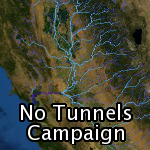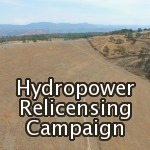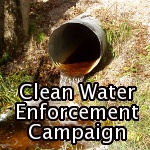Article from CalMatters.
By Chris Shutes, Special to CalMatters
September 17, 2020
In summary
The state water board needs to restore a balanced water budget, and the state needs to stop ignoring how out of balance the water budget really is.
Chris Shutes is the water rights advocate for the California Sportfishing Protection Alliance, blancapaloma@msn.com.
Former U.S. Secretary of the Interior Bruce Babbitt writes that a “Grand Bargain” in California water is needed to end the “political culture of deferral” and allow major water projects to advance. On the contrary, what’s needed is an adult regulator that will make hard choices that water users refuse to make.
For at least five years, the state and various water users have postponed balancing the state’s water budget by promising a grand bargain. This promised new grand bargain is not the solution to the aptly named “culture of deferral.” The grand bargain is the current center of deferral.
There is not enough water reliably available in California to continue to meet existing uses. The most obvious consequences are ecosystem collapse and sinking groundwater levels.
The State Water Resources Control Board needs to step in and restore a balanced water budget in California. The state needs to spend its resources to help soften the landing for those who lose water and stop ignoring how out of balance the state’s water budget really is.
The classic approach to competition for California’s water was to balance the water budget by over-appropriating the state’s surface water and by overpumping groundwater. As extraction options became fewer and more expensive, water users moved in the 1990’s to the cooperative “CalFed” model, which further deferred restoring needed flows to rivers and the Sacramento-San Joaquin Delta.
By the early 2000’s, ecosystem collapse accelerated. Groundwater deficits worsened, and the State passed legislation regulating groundwater in 2014.
The 2009 Delta Reform Act required the state water board to issue a report on the flows needed to restore “public trust” resources in the Delta. The board issued its report in 2010. But the state water board has since backed away from its report, saying that the public’s right to enjoy public property must be balanced with other uses. The board hasn’t established a balance, and water users across the state have spent 10 years pressuring the board to ignore the report entirely.
State negotiators and water users have never released an explicit water budget for their promised grand bargain, but it is clearly far less than the board’s flow report. And after years of negotiations, the water community and the state team haven’t answered a basic question: what is the mechanism by which water released upstream to improve flows will pass through the Delta and not be diverted?
The state water board has not helped itself while waiting under the direction of two governors for someone else to bring a ready-made solution. If the board has decided how it will protect water released upstream as Delta inflow and outflow, it hasn’t made its decision public. In 2018, the board issued a plan for the San Joaquin River that low-balled flows in good years while it deferred putting numbers on reservoir storage requirements and defining a plan for droughts and dry years.
Before anyone even thinks about approving new water projects, the governor needs to turn the state water board loose to do its job managing existing resources. The board needs to dig into the demands, uses, hydrology and operation of each watershed that is tributary to the Delta. It must set clear and enforceable rules for each watershed in detail, not just approximate them. It must set operating rules for the Delta that turn inflow into outflow. It must also set rules for upstream diversions and reservoir storage.
In short, the state water board must establish a state water budget that California can afford. It must balance the public trust. And the state must defend the water board’s work.









